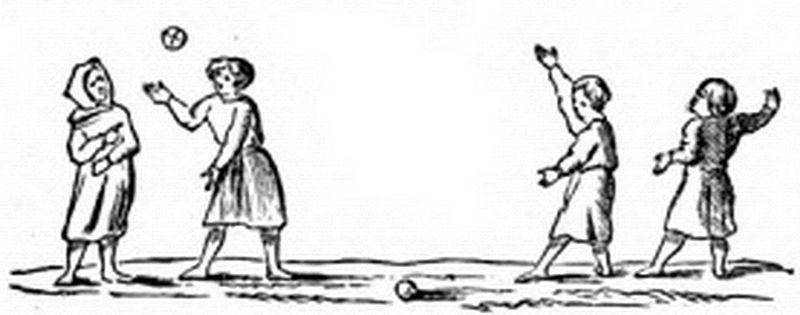As recently as 2017 the AFL became the last mainstream Australian sporting code to succumb to the temptation to play games on the once-sacrosanct Easter Friday. There was a bit of hand-wringing when they assured us that this decision wasn’t, in fact, an exercise in greed, donating all game proceeds to the Royal Children’s Hospital’s Good Friday appeal. This looked suspiciously like the AFL assuaging its corporate guilt via blood money—an ironic modern act of atonement for devaluing the ancient story that granted us the holiday in the first place.
Still, I’m wondering why they felt the need. I reckon an extremely strong case can be made that sport—embraced as it is by so many Australians—fits comfortably with the true meaning of Easter.
Even a cursory look beyond the AFL/NRL juggernauts reveals Easter as the “Holy Week” for many traditional Australian sports.
The sport of Kings (if not the King of Kings) has Stakes day at Randwick and for many fans of the gee-gees that’s not even close to the highlight. Picnic races are held across the nation, with Oakbank picnic races in Adelaide having been held since the 1870s and regularly drawing 100,000 people. Professional foot racing (to use the quaint old term) has its holiest day in its richest event: the storied Stawell Gift. Australian surfing has its annual pilgrimage to the Holy Grail of Bells Beach. Golfers embrace the spiritual discipline of sleeplessness to watch their gods striding the hallowed turf of Augusta National. Rowing has a century’s worth of “Henley on the Murray” regattas, Qambatook has its annual tractor pull, and the list goes on.
Despite the efforts of some, Easter and sports have been inescapably entwined for hundreds of years.
Of course, this passion for Easter sport is not new. It has been going on for years. Check out this headline from the Brisbane Sunday Mail, April 5, 1953:
THERE WERE NO BOUNDARIES TO EASTER SPORT IN THE CITY … AND IN THE COUNTRY
Easter took city sportsmen into many country cities and towns yesterday. From Bowen into the Northern Rivers of New South Wales as far as Grafton, hundreds of sailing enthusiasts, golfers, tennis and hockey players, cyclists, life-savers and riflemen competed at the various regattas and carnivals. To-day’s details page of The Sunday Mail tells how they fared …
Unquestionably, the 1950s was far more religious than today. Yet here we have a remarkably shameless celebration of a flood of sport on the sacred weekend.
It would be a mistake, too, to characterise this sporting obsession as an expression of irreligion from faithless colonials. It was properly inherited from the “good Christian” mother country. I love this entry from the (very cool) Encyclopedia of Traditional British Rural Sports:
Easter was a particularly important time for sports despite its date moving from year to year – a “moveable feast” in the Christian calendar. The fact that the holiday spanned a weekend and that it often coincided with the first signs of warmer weather, made it ideal for sporting activity. It was a popular period for jousting, quintain, egg and orange rolling, football and marbles. Like many other games, Hallaton bottle kicking was staged on Easter Monday. Cockfighting was common over the Easter period … and other popular sports in Wales included quoits, wrestling, displays of strength and stoolball. Football was also played at Easter, as in Anglesey in 1734 between the parishes of Llanbadrig and Llanfair-yng-Nghornwy before a crowd of several hundred. That game continued for over three hours and finished one goal (or ‘end’) each, and despite the rather boisterous nature of the encounter the sides parted, according to the diarist William Bulkeley:
as good friends as they came, after they had spent half an hour together in cherishing their spirits with a cup of ale…having finished the Easter Holydays innocently and merrily.
Sport was, above all, a celebration of the existence of the community.
How little has changed!
Indeed, the aforementioned noble game of stoolball is instructive on just how widespread this Holy Day pursuit of sport is. Thankfully an ancestor of cricket (and not what you might be imagining) stoolball was apparently the first bat-and-ball-type game known to have been played in North America. We have records of a game occurring at Plymouth in 1621 at Christmastime to much tut-tutting from the (presumably religious) Governor Bradford.

It seems clear that, despite the efforts of some, Easter and sports have been inescapably entwined for hundreds of years.
Perhaps sport has become too commercialised. Perhaps there’s an element of superficiality in Australian’s obsession with sport. Yet at its best, sport is a celebration of human community. And because it is, there is no clash with the “true meaning of Easter”. Instead, it fits perfectly. It does so because the traditional Easter story witnesses the personal creator of the universe valuing community above all. Good Friday, especially, shows Jesus’ willingness to take whatever extreme action is required to restore community between people and people, and between people and God. If this story is true then community is at the centre of reality. So it makes sense on the Easter weekend to celebrate life and the value and beauty of the local community, with whatever it is that gets you and your family’s blood pumping—a footy, marbles, a surfboard or, as the case may be, pulling out the jousting sticks!
This article first appeared in the Daily Telegraph.


